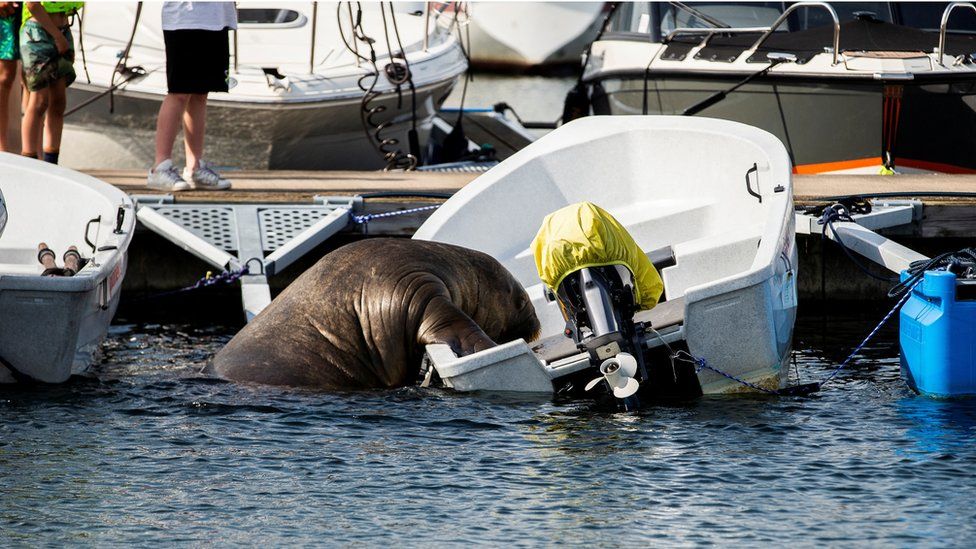ARTICLE AD BOX
By Alys Davies
BBC News
 Image source, Reuters
Image source, Reuters
A young female walrus has chosen Norway's capital Oslo as her holiday destination for 2022.
Onlookers spotted the marine mammal clambering onto boats - which often look like they are about to capsize under her not inconsiderable 600-kg (94-stone) heft - to nap in the sun.
Nicknamed Freya after the Norse goddess of love, she has become something of a celebrity in the country.
It is thought this may be the latest European stop-off for the mammal.
There have also been sightings reported in the UK, the Netherlands, Denmark and Sweden.
But she first caught people's attention in Norway when she was spotted climbing onto boats in the southern coastal town of Kragero in June.
More recently, she made her way to Oslo, where onlookers have been gathering to catch glimpses of her from the city's jetty.
Image source, Getty Images
But her presence has caused concern among some. One kayaker described a "scary encounter" with the animal when it came too close to his vessel, local media report. Another boy fell into the water near the walrus when he was paddle-boarding and had to be rescued by a jet ski, Norwegian news site Nettavisen said.
Following the incidents, some suggested that the walrus should be moved from the area, or even euthanised.
But after monitoring Freya's movements, Norway's directorate of fisheries released a statement on Monday saying that the mammal is in good condition and can remain where she is.
It did, however, stress that people should keep their distance and be careful when swimming in the sea.
It added that walruses do not usually pose a danger to humans as long as they keep their distance. But if disturbed, they may feel threatened and attack people nearby.
"She... is not necessarily as slow and clumsy as one might think when she is resting," it said.
Walruses are a protected species that tend to spend the summer in icy waters, according to the World Wildlife Fund (WWF).
But their habitat is changing quickly, with sea ice loss caused by climate change limiting their access to it, it adds.

 2 years ago
71
2 years ago
71








 English (US) ·
English (US) ·